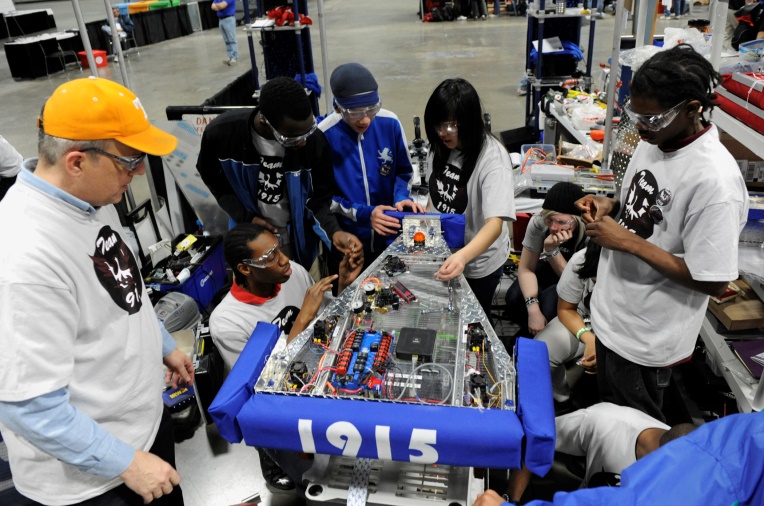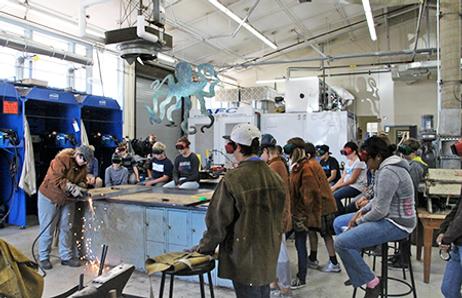Crafting a Plan Beyond High School
As high school students prepare for life beyond their public or private schools, it is critical that they have a plan in place for their future. While many students are encouraged to pursue more of an academic route following their graduation, there are other more suitable options available to help them select a more suitable path. Around the country, more programs are offered to provide students choices about their career paths which include but are not limited to apprenticeships, internships, vocational trade schools, community colleges, and four-year colleges.
Having a plan for life after high school is crucial for students prior to reaching their senior year. Helping students hone in on their unique interests and skillsets are all components they need when recognizing and defining future goals. Most importantly, they need to be able to articulate their goals. Many school systems look at several factors as they attempt to direct students towards being ready to pursue either the workforce or further their education.
- What are the student’s grades like?
- Do they have a strong community or family support?
- What are their academic strengths or weaknesses?
- Are they able to communicate their decisions and thoughts to others effectively?
- What are their genuine interests?
Vocational Schools
Vocational schools specialize in offering very specific skillset options for students while also ensuring completion towards certification and a high school diploma. There is no need for students to spend part of their day in their zoned school and the other half at a trade program. This is an all-in-one stop for students looking to earn a certification towards immediate employment along with their diplomas. For students who are looking for a non-traditional academic avenue of professional development beyond high school, vocation school offers students the opportunity to develop and refine a skill set based upon interests. Some students are more hands-on and benefit from opportunities to apply skill sets in a real-life simulated setting.
This video looks at some of the lucrative jobs available to trade and vocational school grafuates.
Trade Schools
Trade schools typically offer students programs pertaining to skills sets such as automation, mechanics, carpentry, child development, food service, photography, health care, and software development just to name a few. The trade school has professionals in the field educating alongside the students as they become competent in their trade. Partnerships and employment connections are also available to students upon the completion of their programs. Oftentimes, students in trade schools are able to make candid decisions to either further pursue more education in their current field of interest or go directly into the job force using their trade skills. President Obama has also endorsed trade-based schools and skill set programs as a format to keep our nation better prepared to provide specific skill sets to companies where there are high-demand areas to increase the likelihood of keeping such jobs available to American workers that would otherwise become outsourced.

Internships
Companies provide several avenues of entry into their establishments. Internships are temporary on-the-job training opportunities for students to glean a more practical insight as to what professional competencies the potential employee would expect from a new hire. Internships benefit the company’s vision, a department looking for fresh ideas, a research-based project, or simply ensuring it remains relative to its local community through partnerships. Internships may offer college credits, monetary stipends, or scouting opportunities for future hires.
Apprenticeships
Not all jobs require a four-year college degree. This is a relief for high school students who are not interested in pursuing a college degree or lacking the necessary funds to enter higher education upon graduation. Several companies are willing to train and hire their own staff. By enrolling in an apprentice school, students are able to receive explicit training for the company they will work for and be more marketable candidates upon completion and certification of the apprenticeship program. For example, the naval shipyard industry in Norfolk, Virginia will pay the new hires to enroll and take the necessary apprenticeship classes. During the apprenticeship, students are exposed to a variety of jobs they could be hired for upon successful completion of coursework. Once the student selects the particular department of interest, they will be receiving exclusive on-the-job training for that department. As long as they are able to demonstrate proficiency in the apprentice school towards certification, that department will hire them.
If a high school student is considering an apprenticeship vocation opportunity, they should be very aware of what the company’s expectations and hiring packages are before entering. If it is a competitive apprenticeship, hiring may not be guaranteed upon completion of the program. It is also important for the student to keep in mind that if they are planning for upward mobility or pursuing leadership roles for the company in the future, additional academic schooling may be required.
Advanced Placement Courses
Many high schools offer high school students an opportunity to get a head start on their coursework that offers college-level material. The purpose of the advanced placement courses is for students who are mentally and academically willing to learn more complex course work at a faster pace equivalent to a college semester. The course work is approved in conjunction with the state’s department of education and local universities. Students must have already proven competency to test and pass the general education equivalency for the course before they are considered for an advanced placement course. There are also minimum grade requirements for advanced placement courses.
Once the student completes the course, that course becomes part of their high school transcript and count towards their future college coursework. Students who enroll in advanced placement courses as early as their sophomore year in high school are eligible to receive a substantial amount of college credits if the college they will be attending accepts the advance placement coursework descriptions. For students interested in science, engineering, and liberal arts degrees, can design their high school coursework as a tailored academic track. The academic track serves to match advance placement course work with potential colleges and universities the student would be interested in pursuing. This is a tremendous opportunity to earn college credits at no cost while still enrolled in a public school setting.

College
Students need to understand how college can benefit them before they invest in a very costly venture. Having strong background knowledge about what short-term and long-term goals students have for their future will help those sound decisions. By knowing what is important to them as an individual helps them match their passion with a higher education institution that will allow them to pursue their goals. As part of a Newport News Public Schools district, students are encouraged at a young age to be problem-solving citizens who are college, career, and citizen ready once they leave the public education sector. In other words, the curriculum has been developed and written in such a way as to get students to notice concerns and issues around them and becoming proactively involved in community projects. This is component is presented intentionally to show students that they have a responsibility to be a voice in their community for the purpose of changing lives for the better of others and ultimately, themselves.
.jpg)
College for high school students is the place where they go to discover how to best serve their community, the nation, and the world. Knowing a student’s passion for change and their academic track provides a greater opportunity for them to connect with higher education institutions that have common goals. Many colleges have recruits from all over the state and nations that offer students expensed paid orientation and private tours for them to come and view campuses that potentially match their interests. With the cost of four-year universities constantly on the rise, many community colleges already have partnerships with four-year universities. This is an excellent option for students who may need to slowly transition into the lifestyle and financial obligations of a four-year college. Questions for high school students, families, academic advisors to discuss four-year colleges may include:
- What are the academic requirements for acceptance into this school?
- Without substantial scholarships, will financial aid (loans) be required in order to afford to attend here?
- Is this an accredited university?
- Already scheduled orientation or visited the campus?
- Are there programs that fit interests and career track?
- On-line program availability?
Conclusion
Allie Bidwell examines this convoluted paradigm facing so many of our youth as they prepare to enter the workforce or seek educational pursuits. Executive Director of Opportunity Nation, Mark Edwards, stresses the importance of not pushing students into believing college is the only way to make a living. Not every student is going to benefit from the college experience and should be encouraged to seek all post-high school options. Whether they are deciding between college and the workforce, high schools want their students well informed before their senior year and aware of postgraduate options as they enter civilian life beyond the classroom.
Questions? Contact us on Facebook. @publicschoolreview















